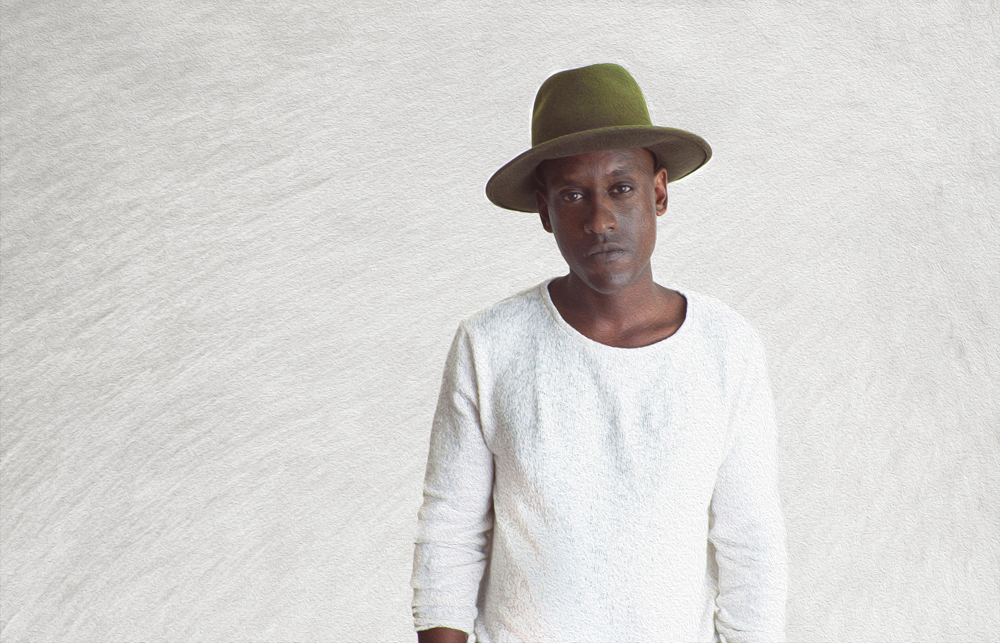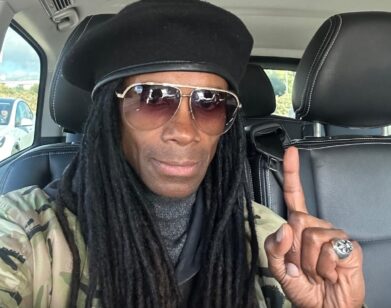Exclusive Track Premiere: ‘Lionheart,’ Negash Ali

ABOVE: NEGASH ALI.
When rap music forged its beginnings, it was a lyrical lexicon that gave voice to a young urban generation struggling for definition. The 24-year-old musician Negash Ali and his new single “Lionheart” give listeners classic hip-hop infused with heart and soul, while simultaneously providing distinct R&B influences.
Ali’s story itself is one worth telling: while pregnant with Ali, his mother fled their native war-torn Eretria for Denmark, where they spent his first five years in refugee camps. After being granted political asylum, Ali found a love of music and began performing at the ripe age of 13. Since then Ali has forged a career as a musician, writer, and collaborator with the likes of Jadakiss and Chris Brown. He began his solo career in 2009, and has seen the release of two full-length studio albums as well as an EP earlier this year. “Lionheart” is the first single and titular track from his upcoming EP, which is set to drop February 12, 2015.
Finding inspiration in his own life, Ali’s newest track combines the lyrical flow of Nas or Mos Def with the emotional depths of Otis Redding. “Lionheart,” which we are pleased to premiere here, is about the perils of a fledgling romance and as emotionally relatable as it is catchy, showcasing the realm of more heartfelt, less aggressive hip-hop.

MERYN CHIMES: How’s your day been?
NEGASH ALI: It’s been good. I had this vocal coaching session with Sam Smith’s teacher.
CHIMES: Did you learn anything interesting?
ALI: I did. The thing with me is, I’m from a rap background so I’m not really a traditional singer in that sense. She gave me a lot of really great pointers–basically told me to do my thing and get some technique down. I want to be able to sing like that guy someday, but don’t we all?
CHIMES: Tell me a bit about growing up. Were your parents into music?
ALI: Yes, very much so. My mother was very big on traditional Eritrean music, which kind of has more of a jazz influence. My father was a musician as well, like traditional East African music, jazz-folky type stuff. So I had a lot of music going on growing up. My father always had these aspirations; I really took some stuff from him and that drive. But it was when I was about nine or 10 that I really go introduced to the more urban side of music.
CHIMES: I knew you started very young–what was it like performing at such a young age?
ALI: I remember my first performance was at my school. I always felt very much at home on stage. I would always feel comfortable up there, whereas a lot of other performers when they would get started would feel hella nervous. That was the first thing people would tell me–that in comparison to how many times I had been up there, I already had that showmanship and was comfortable being myself. That’s always how I’ve felt.
CHIMES: Did either of your parents ever watch you perform when you were younger?
ALI: [laughs] That was the thing–you didn’t really want them to come. They would say, “I heard you had this gig around town,” and I would say, “Oh it’s canceled.” But they did, and they have. They’ve always been supportive. A lot of other second-generation immigrants have this pressure from their parents: “You have to become a doctor or a lawyer because we fought so hard to get you here.” I’ve always had good support for doing what I wanted to do. When it became music they were just as supportive as well.
CHIMES: What was one of the first CDs you ever bought?
ALI: My first two really conscious purchases were Tupac’s Greatest Hits and Eminem’s The Marshall Mathers. Classics.
CHIMES: So how would you describe your own style of music?
ALI: I like to think of it as having temperament. When I listen to music I have the ADHD that all of us have. You really need a lot to happen in a short amount of time. With my newer material, there’s more temperament. It’s the exact way I would want to consume music, which is to condense it as much as possible. It’s very mood-based; it’s about telling a story and it’s about communicating that story in a way that’s powerful and relatable without compromising it in any way, shape, or form. I try to keep it eclectic. Obviously I have that urban background, but I need melody, I need a song, so I try to mix and match and keep it fluid. It definitely has a melancholy undercurrent running through the whole thing.
CHIMES: I noticed that with latest single, “Lionheart,” seemed softer and slower. It seems to deal with heartbreak. Was it a cathartic song for you?
ALI: I think it’s the first song I’ve ever done where I really tackled that subject from the most humble and honest place I could. A lot of times you’re pulling from a place where you might not have been that committed in a relationship, whereas “Lionheart” comes from a very committed place, if you will. It’s definitely not a vibe I’ve gone for before.
CHIMES: You’re at a different place in your life.
ALI: Exactly. When it comes from a real story and from a real place I think it comes across to people. That’s important.
CHIMES: I heard it’s about a difficult relationship?
ALI: For me this song is the portrayal of my first real relationship and it’s one of those scenarios: “Well, okay, the easy period is over. All the lovey dovey stuff has come to an end. All we have is too much of a good thing that’s just not going to last. So if we’re going to give into one another we’re going to need to have a…”
CHIMES: Deeper connection?
ALI: Yeah, and the thing is, I feel like it’s kind of a masochistic concept, isn’t it? We’ve been through so much together and trust each other. You have a deeper connection with people who you have shared experiences with and shared pain. To me, that’s what the song is about.
CHIMES: I heard a lot of R&B in that song and also some of your other tracks. Do you have any favorite, maybe old school, R&B artists?
ALI: Oooh old school stuff…don’t get me started! Bill Withers is a big one, Bobby Blue Bland, Billy Paul. I mean, you know, all the greats–Ray Charles, Stevie Wonder, Marvin Gaye, Otis Redding…
CHIMES: Something to aspire to?
ALI: Exactly. It’s timeless–10 years ago or if you put those records on for someone in our age group [now]. It’s amazing because not a lot of music has that longevity and a lot of musicians are still trying to emulate that. Everything is going digital and everyone is trying to go back to, “How did they do it back in the Motown days?”
CHIMES: It’s that grittiness to the sound and to the emotionality of the song.
ALI: Exactly, the rawness.
CHIMES: Why do you think you make music? Do you see it as an inward or an outward act?
ALI: There’s a strange dynamic between the two. First and foremost, I believe the things I love inwardly will be received by the right people outwardly. I believe that what I believe in will be received well. I try to keep that as a foundation to what I do. Some people say that music isn’t something you are; it’s something you do. It’s having a constant desire to share and express. But I believe it’s something you are. To me it’s more inward.
CHIMES: How have you seen your music evolve throughout your records?
ALI: I think when you’re younger you have this tendency to have a more black-and-white view of things. You’re more exclusively dedicated. I would say over the span of my albums in my sound and what I do, I tried to embrace everything. There’s beauty in imperfections. All of that weird stuff comes across [and] you have to understand that’s the making of you, what makes you unique. Coming in and out of a lot of those processes, you have to understand that nakedness of what you do is exactly who you are, and that’s how it should come across.
ALI’S EP ‘LIONHEART’ WILL BE RELEASED JANUARY 5, 2015. FOR MORE INFORMATION ON THE ARTIST, VISIT HIS FACEBOOK.






